Items
Contributor is exactly
Andrew May
-
2020-03-18
What we do as the plague approaches: Post 1
Melbourne writer Arnold Zable began regular posts on Facebook in mid March about his thoughts and feelings on the pandemic. He has given permission for them to be reproduced here. -
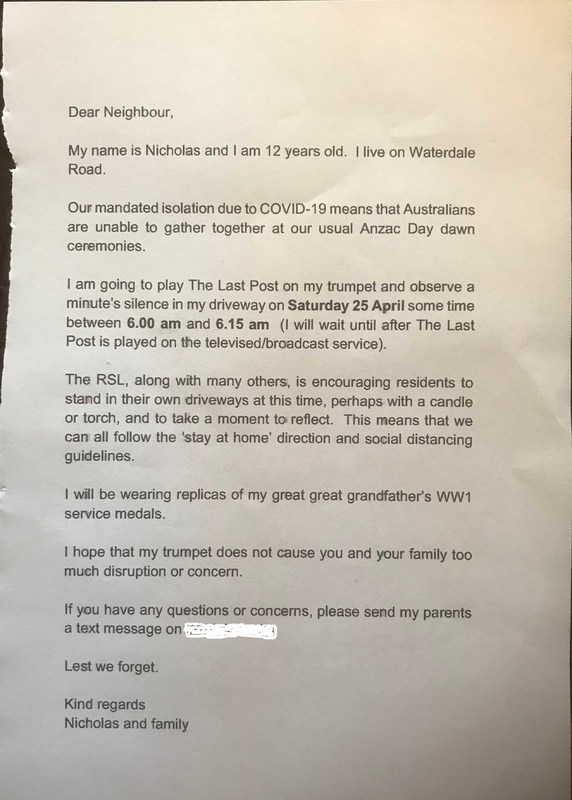 2020-04-25
2020-04-25Last Post
With official public commemoration of ANZAC Day cancelled, people are finding their own ways of expressing their tributes locally. -
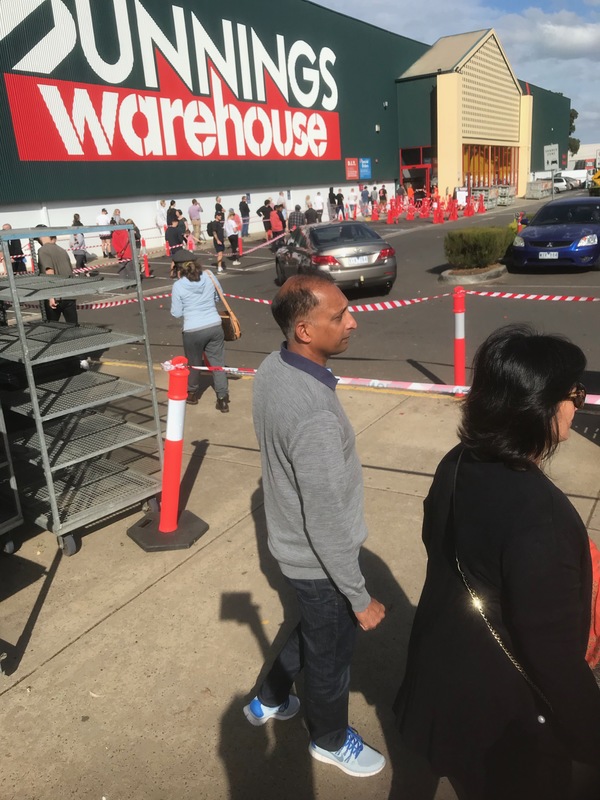 2020-04-25
2020-04-25Queuing for essential hardware
Australians are permitted to leave home to shop for food and essentials. -
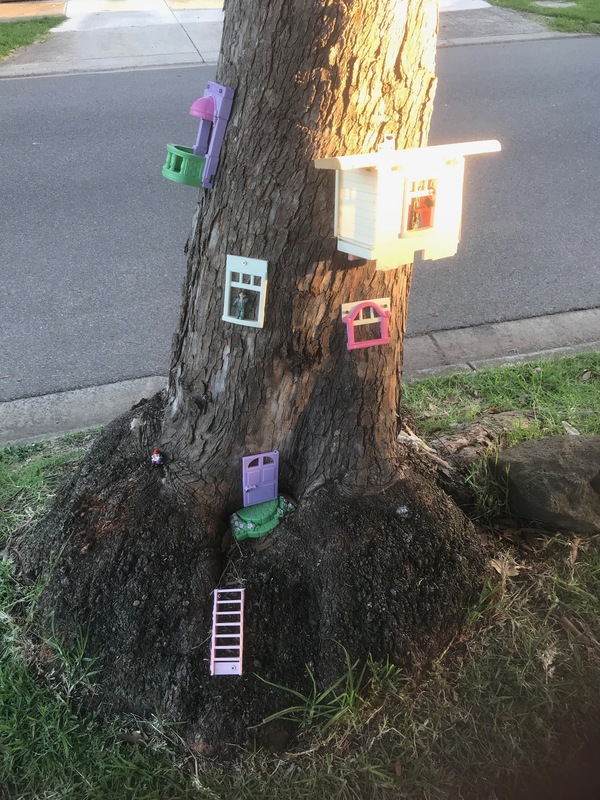 2020-04-24
2020-04-24Street as playground
With social distancing in place and stay-at-home rules, kids are playing more in the street right outside their own properties. -
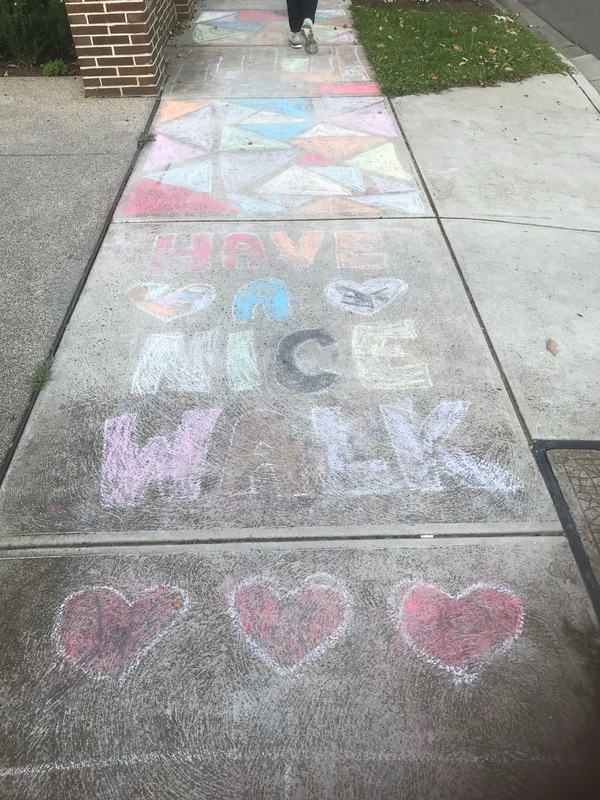 2020-04-24
2020-04-24Have a Nice Walk
The kids are taking over the footpaths with chalk messages -
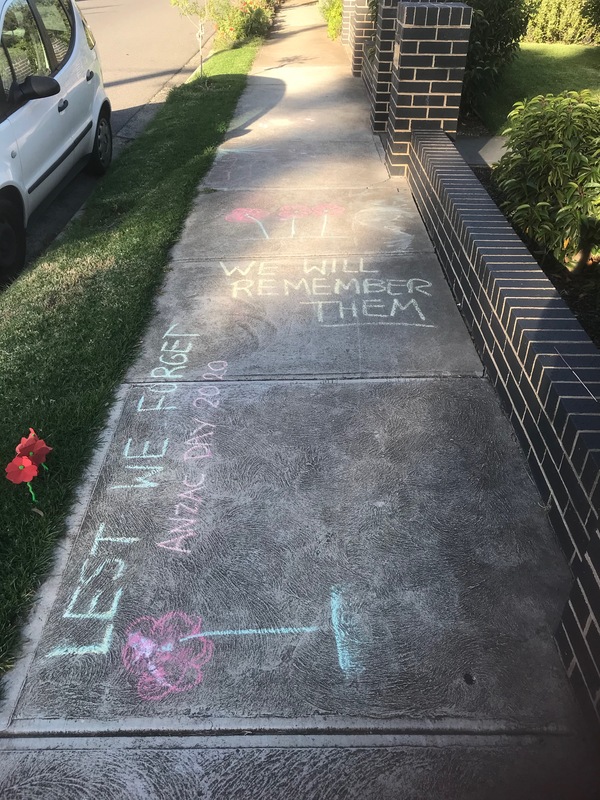 2020-04-24
2020-04-24ANZAC Day chalk message
Another example of vernacular response at a local neighbourhood level for ANZAC Day -
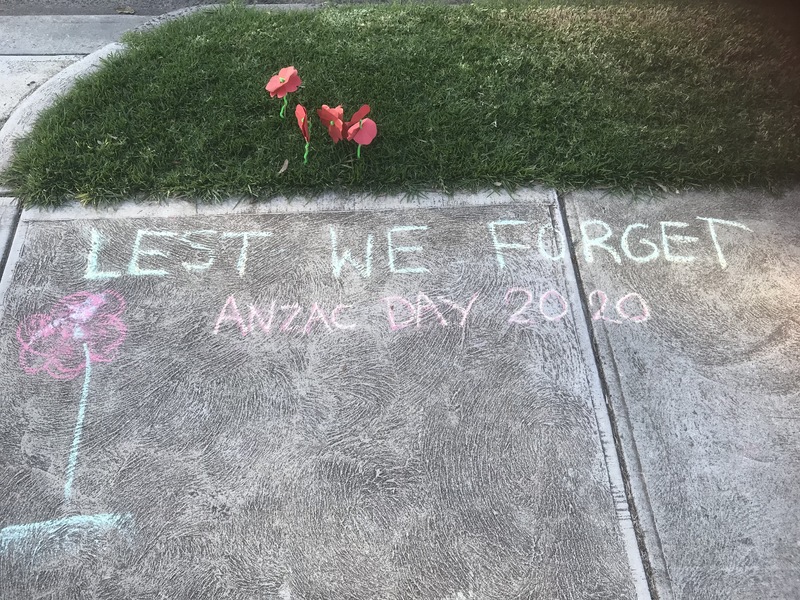 2020-04-24
2020-04-24ANZAC Day 2020
With public ceremonies for the annual ANZAC Day commemoration cancelled, there is more vernacular response at a local neighbourhood level. -
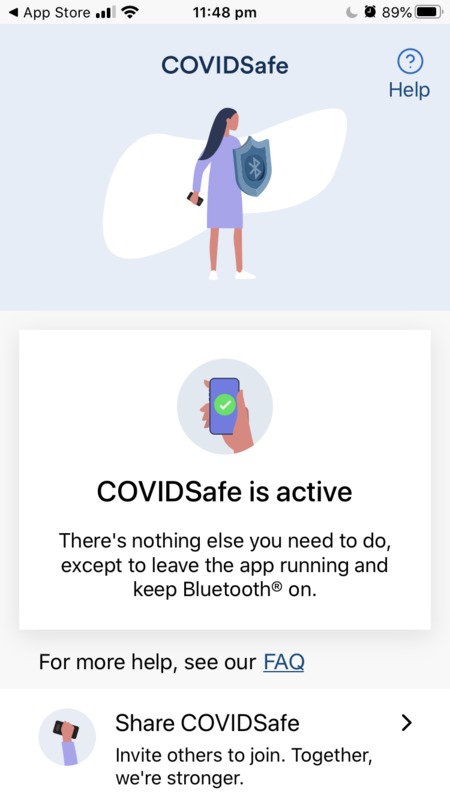 2020-04-26
2020-04-26COVIDSafe Phone App
Despite some concerns about privacy, the Australian Government has just launched the COVIDSafe app to help in contacting people exposed to coronavirus. Around a million people have downloaded the app n the first day -
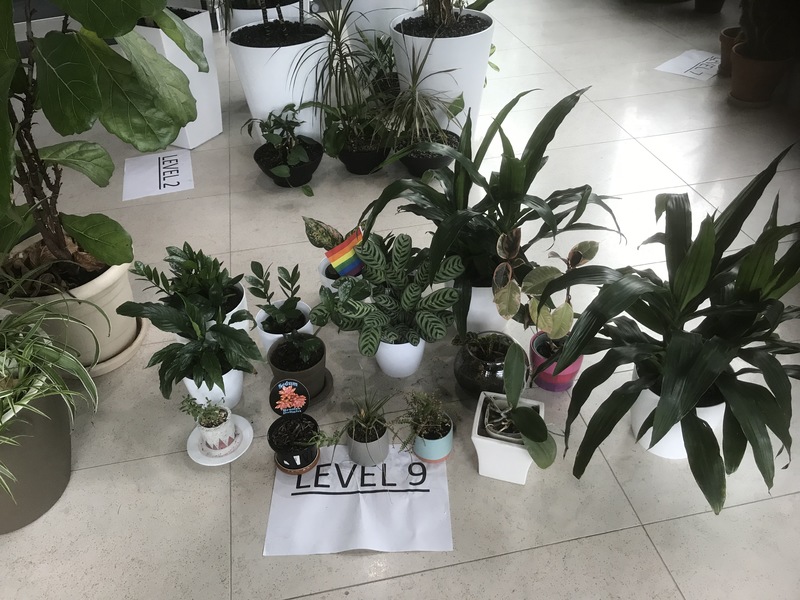 2020-04-17
2020-04-17Looking after office pot plants
Staff have vacated offices in the Law School at the University of Melbourne but pot plants from all floors are being looked after in the lobby -
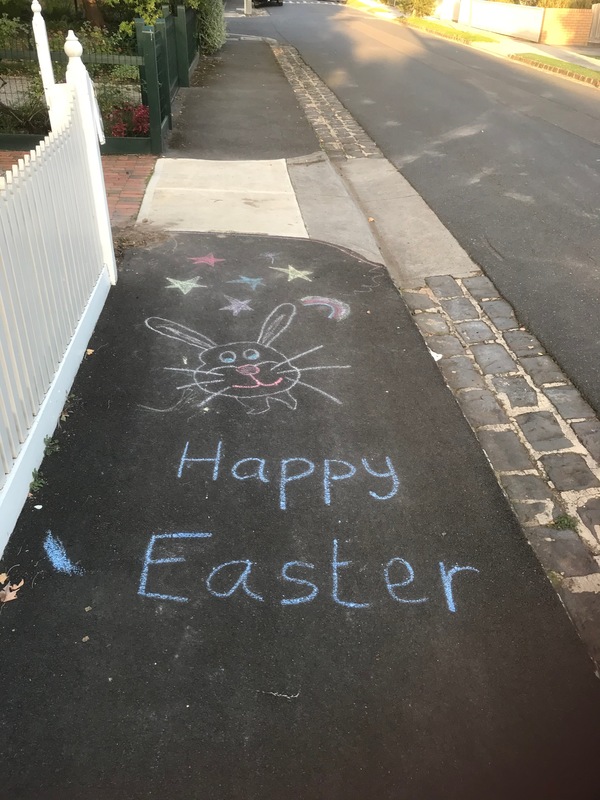 2020-04-17
2020-04-17Chalk footpath message
Easter chalk message on neighbourhood footpath -
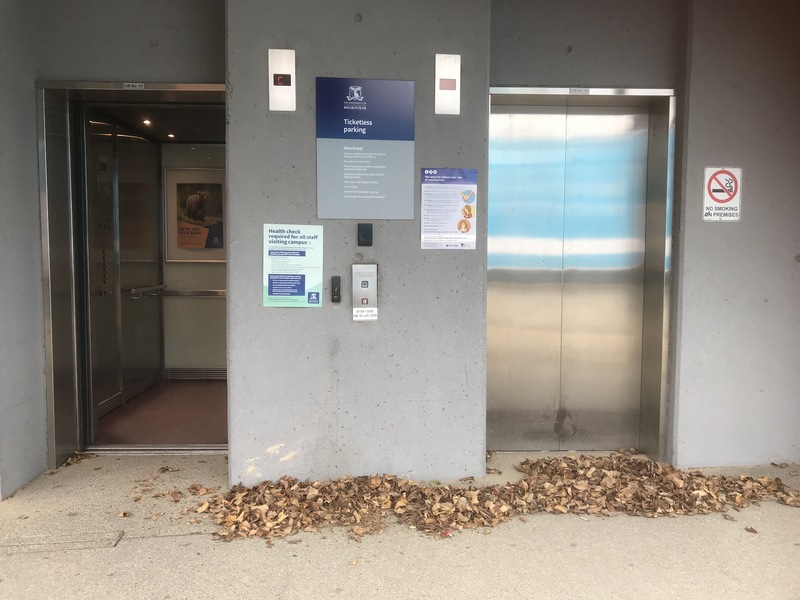 2020-04-17
2020-04-17Deserted University campus
The University of Melbourne campus has a deserted feel due to access restrictions -
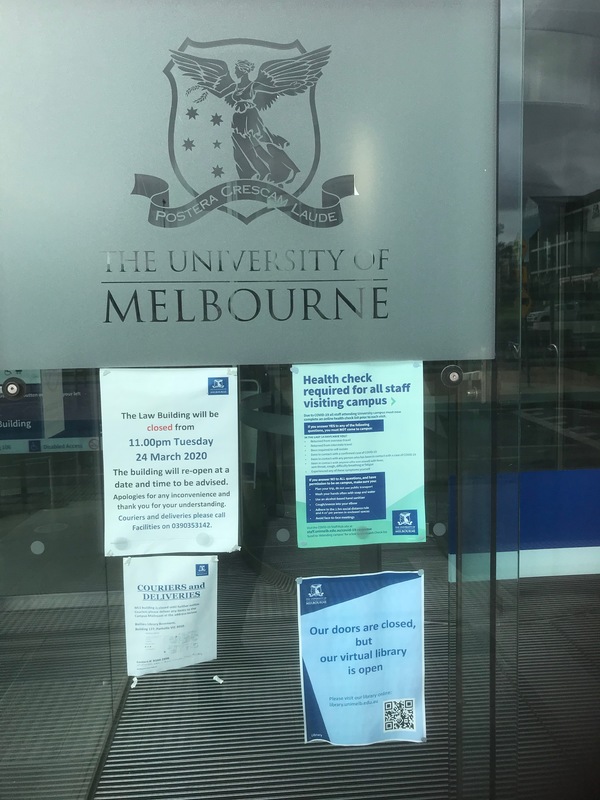 04/17/2020
04/17/2020Access signage on University of Melbourne campus
Access restrictions to the Law Building at the University of Melbourne -
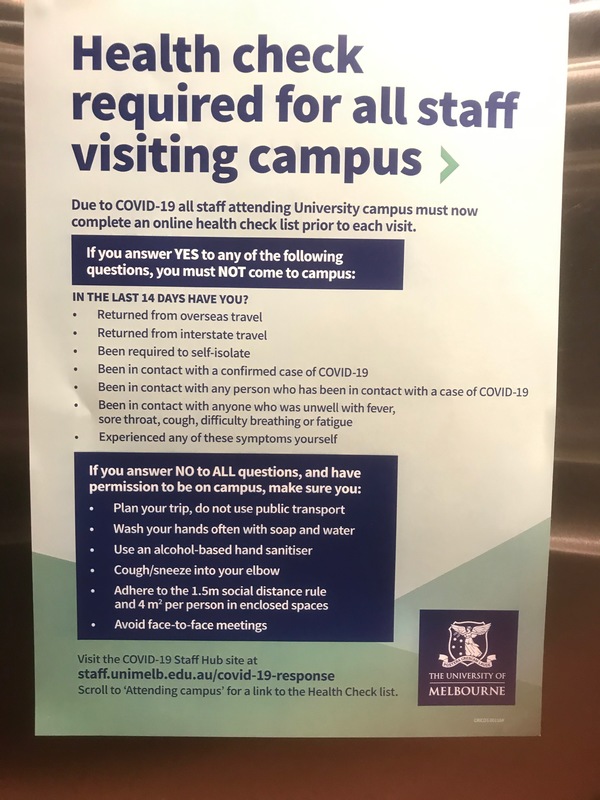 2020-04-17
2020-04-17University access restrictions
Access to the University of Melbourne Parkville campus has been restricted for some weeks now -
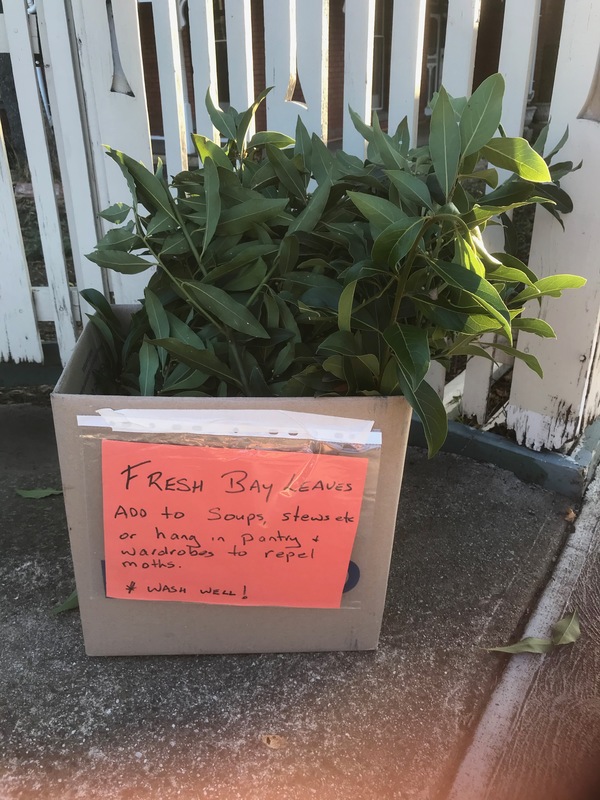 2020-04-09
2020-04-09Neighbourhood herb handouts
Neighbours have started up a practice of leaving spare herbs outside their gates for anyone to share -
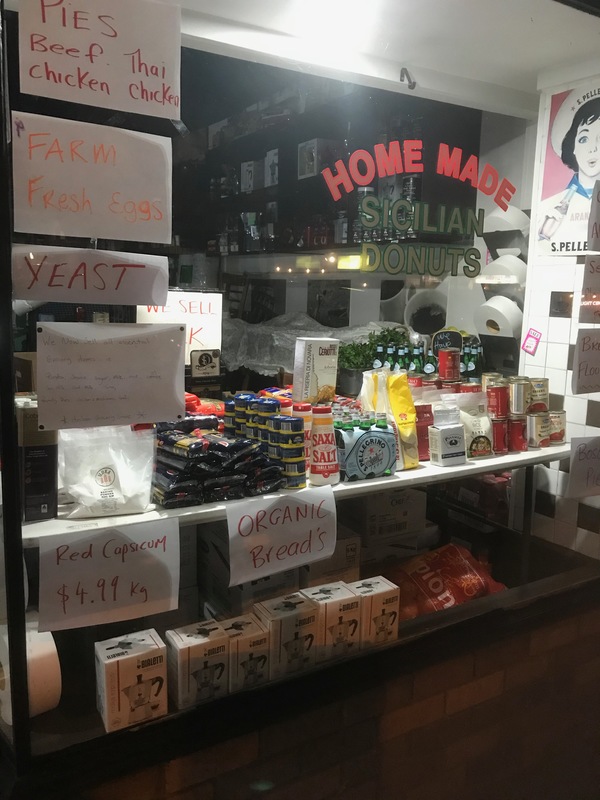 2020-04-08
2020-04-08Local Italian cafe restyled as grocer
Local cafes can only serve takeaway so our local Italian cafe Tre Fontane is reinventing itself as an Italian grocer to stay in business -
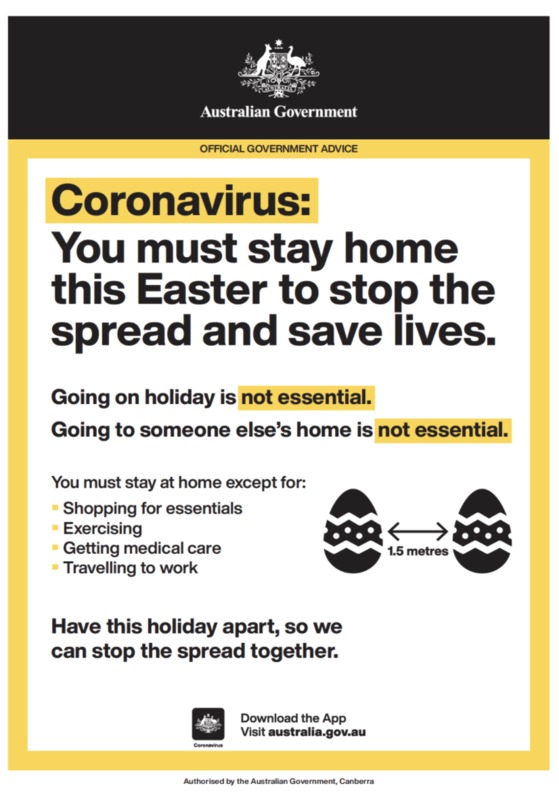 2020-04-12
2020-04-12You must stay home this Easter
Australian Government poster advises people to stay at home over the Easter weekend unless shopping for essentials, exercising, getting medical care, or travelling to work -
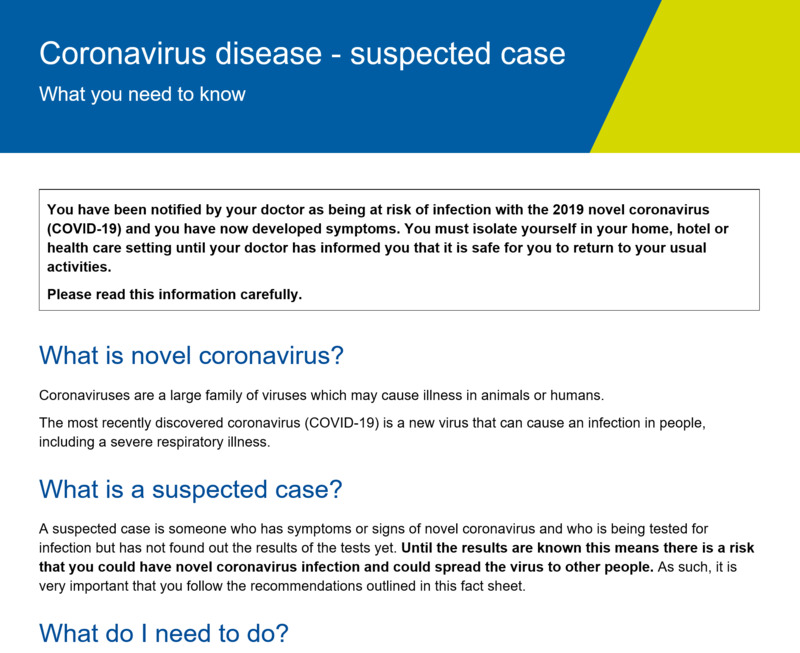 2020-02
2020-02Victorian State Government "Suspected Case" fact sheet
Government fact sheet for people who have been notified by their doctor as being at risk of infection and have now developed symptoms. You have been notified by your doctor as being at risk of infection with the 2019 novel coronavirus (COVID-19) and you have now developed symptoms. You must isolate yourself in your home, hotel or health care setting until your doctor has informed you that it is safe for you to return to your usual activities. Please read this information carefully. What is novel coronavirus? Coronaviruses are a large family of viruses which may cause illness in animals or humans. The most recently discovered coronavirus (COVID-19) is a new virus that can cause an infection in people, including a severe respiratory illness. What is a suspected case? A suspected case is someone who has symptoms or signs of novel coronavirus and who is being tested for infection but has not found out the results of the tests yet. Until the results are known this means there is a risk that you could have novel coronavirus infection and could spread the virus to other people. As such, it is very important that you follow the recommendations outlined in this fact sheet. What do I need to do? Your doctor will arrange for you to be tested for the infection. It may take a few days for the test results to be returned. If your symptoms are serious you will need to remain in hospital isolated from other patients to prevent further spread of the virus. If your doctor says you are well enough to return home while you are waiting for your test results you will need to stay isolated and monitor your symptoms as described below. Stay at home or in your hotel room • Isolate yourself at home until you are advised of the results by your doctor. – You should not leave your house except to seek medical attention. – You should stay in a different room to other people as much as possible. Use a separate bathroom if available. – Wear a surgical face mask when you are in the same room as another person and when seeking medical care. – Do not go to work, school, university, work or attend public places or events. Do not use public transport or taxi services. • Where possible, get others such as friends or family, who are not required to be isolated, to get food or other necessities for you. • If you have difficulties getting food or necessities, call 1800 675 398 for support. • If you need a translator first call 131 450, then request the hotline on 1800 675 398. More information is available on our website: dhhs.vic.gov.au/novelcoronavirus • Please keep Triple Zero (000) for emergencies only. Going outside If you live in a private house, then it is safe for you to go outside into your garden, balcony or courtyard. If you live in an apartment it is also safe for you to go outside into the garden while wearing a surgical mask. You should, however, go quickly through any common areas on the way to the garden. Wear a surgical mask if you have to move through these areas. Monitor your symptoms If your illness gets worse, you should call the doctor who cared for you or the emergency department where you were assessed. If it is a medical emergency (for example, shortness of breath at rest or difficulty breathing) you should: • Call 000 and request an ambulance • Inform the ambulance officers that you may have novel coronavirus, and they should take precautions. What happens if my test is negative? Your doctor or a Public Health Officer will advise you if you are can cease your isolation. If you were in self-isolation at the time you developed your symptoms, for example because you have been in contact with a confirmed case or travelled to China, you will need to continue isolation until the 14 days since last contact with the confirmed case or from your arrival in Australia. You should continue to carefully monitor your health for up to 14 days after your last contact with the confirmed case. Report any new or returning symptoms to your doctor in this period. You may be required to be tested again. You do not require medical clearance to return to work, university or school. If you have stayed in isolation and remain well, then they are safe to return to their usual activities. What happens if my test is positive? A Public Health Officer will contact you to find out more information from you and provide you with further information. You must remain in your home or accommodation until further tests are completed and you have become well. After a discussion, a specialist may be involved to further assess your illness. A Public Health Officer will conduct an assessment to advise when it is safe to return to normal activities. If your condition deteriorates, seek medical attention: • Notify the department or Public Health Officer managing your care by calling the number provided to you. • Follow the direction of the Public Health Officer who may advise you to go to a doctor or a hospital, and will agree with you how you should get there. • Call ahead to the doctor or hospital and inform them that you are a confirmed case of novel coronavirus. • If you need to leave your home or accommodation to seek medical attention, put on the mask provided to you. • When you arrive at the doctor’s surgery or hospital, tell them that you are a confirmed case of novel coronavirus. If you are experiencing severe symptoms, such as shortness of breath: • Call 000 and request an ambulance • Inform the ambulance officers that you have novel coronavirus. People who you have had close contact with including family members and people you live with will need to isolate themselves for 14 days since their last contact with you. Looking after your well-being during isolation Being confined to home for an extended period of time can cause stress and conflict. Tips for looking after yourself include: • Talk to the other members of the family about the infection. Understanding novel coronavirus will reduce anxiety. • Reassure young children using age-appropriate language. • Think about how you have coped with difficult situations in the past and reassure yourself that you will cope with this situation too. Remember that self-isolation won’t last for long. • Exercise regularly. Options could include exercise DVDs, dancing, floor exercises, yoga, walking around the backyard or using home exercise equipment, such as a stationary bicycle, if you have it. Exercise is a proven treatment for stress and depression. • Keep in touch with family members and friends via telephone, email or social media. • Keep up a normal daily routine as much as possible. • Arrange with your employer to work from home, if possible. • Ask your child’s school to supply assignments, work sheets and homework by post or email, or if the student can join the class using online options. • Don’t rely too heavily on the television and technology. Treat self-isolation as an opportunity to do some of those things you never usually have time for, such as board games, craft, drawing and reading. • If you are struggling to cope you call Lifeline on 13 11 14 or Beyond Blue on 1300 22 4636. Where can I find out more information? Call the Department of Health and Human Services on to discuss any questions you have. If you need a translator first call 131 450, then request the hotline on 1300 651 160. For Victorian updates to the current incident, go to: https://www.dhhs.vic.gov.au/novelcoronavirus For national updates: https://www.health.gov.au/news/latest-information-about-novel-coronavirus For international updates: https://www.who.int/westernpacific/emergencies/novel-coronavirus WHO resources https://www.who.int/health-topics/coronavirus -
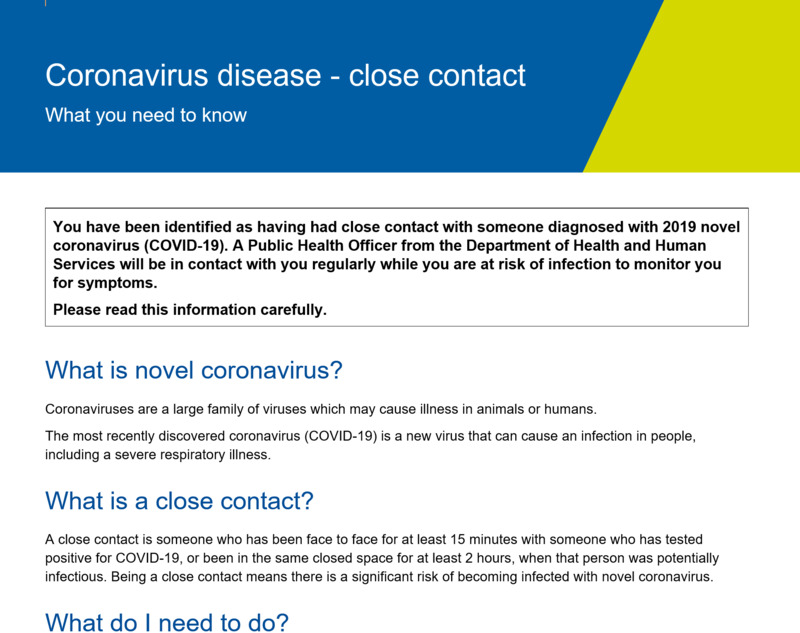 2020-02
2020-02Victorian State Government "Close Contact" fact sheet
Government fact sheet for people who "have been identified as having had close contact with someone diagnosed with 2019 novel coronavirus (COVID-19)", Version 1.3 You have been identified as having had close contact with someone diagnosed with 2019 novel coronavirus (COVID-19). A Public Health Officer from the Department of Health and Human Services will be in contact with you regularly while you are at risk of infection to monitor you for symptoms. Please read this information carefully. What is novel coronavirus? Coronaviruses are a large family of viruses which may cause illness in animals or humans. The most recently discovered coronavirus (COVID-19) is a new virus that can cause an infection in people, including a severe respiratory illness. What is a close contact? A close contact is someone who has been face to face for at least 15 minutes with someone who has tested positive for COVID-19, or been in the same closed space for at least 2 hours, when that person was potentially infectious. Being a close contact means there is a significant risk of becoming infected with novel coronavirus. What do I need to do? Stay at home or in your hotel room • Isolate yourself at home until 14 days after you were last exposed to the infectious person. – You should not leave your house except to seek medical attention. – You should stay in a different room to other people as much as possible. Use a separate bathroom if available. – Do not go to work, school, university, work or attend public places or events. Do not use public transport or taxi services. – Where possible, get others such as friends or family, who are not required to be isolated, to get food or other necessities for you. • If you have difficulties getting food or necessities, call 1800 675 398 for support. • If you need a translator first call 131 450, then request the hotline on 1800 675 398. More information is available on our website: dhhs.vic.gov.au/novelcoronavirus • Please keep Triple Zero (000) for emergencies only. Going outside If you live in a private house, then it is safe for you to go outside into your garden, balcony or courtyard. If you live in an apartment it is also safe for you to go outside into the garden while wearing a surgical mask. You should, however, go quickly through any common areas on the way to the garden. Wear a surgical mask if you have to move through these areas. Monitor your symptoms • Monitor your health until 14 days after you were last exposed to the infectious person. • Watch for any of these signs and symptoms: – fever – cough – shortness of breath • Other early symptoms can include chills, body aches, sore throat, headache, runny nose, muscle pain or diarrhoea. You will be contacted daily by a Public Health Officer to check whether you have had symptoms. What if I develop symptoms? If you develop any of the symptoms listed above: • Call a doctor or hospital and inform them that you have had contact with a confirmed case of novel coronavirus and you have symptoms. • Put on a mask if you have one. • Keep yourself away from others (for example, in a different room). • Do not go to work, school, university, work or attend public places or events. Do not use public transport or taxi services. • When you arrive at the general practice or hospital, tell them again that you are a contact of a confirmed case of novel coronavirus. Your doctor or staff at the hospital emergency department will ensure you are wearing a mask and take you through to a room away from others. The doctor will contact our department on 1300 651 160. They may organise to take nose and throat swabs to send for testing for the novel coronavirus. If you are experiencing severe symptoms, such as shortness of breath: • Call 000 and request an ambulance. • Inform the ambulance officers that you have been in close contact with a confirmed case of novel coronavirus. How can I prevent the spread of the virus? Practising good hand and sneeze/cough hygiene is the best defence: • Wash your hands often with soap and water before and after eating as well as after attending the toilet. • Avoid all contact with others. • Cough and sneeze into your elbow. Should I wear a face mask? Face masks are not recommended if you do not have symptoms. A facemask will not protect you against becoming infected. If you are ill, you should put on a mask if you have one to prevent spreading the infection to others. You will be given a mask to wear by your doctor. Looking after your well-being during isolation Being confined to home for an extended period of time can cause stress and conflict. Tips for looking after yourself include: • Talk to the other members of the family about the infection. Understanding novel coronavirus will reduce anxiety. • Reassure young children using age-appropriate language. • Think about how you have coped with difficult situations in the past and reassure yourself that you will cope with this situation too. Remember that self-isolation won’t last for long. • Exercise regularly. Options could include exercise DVDs, dancing, floor exercises, yoga, walking around the backyard or using home exercise equipment, such as a stationary bicycle, if you have it. Exercise is a proven treatment for stress. • Keep in touch with family members and friends via telephone, email or social media. • Keep up a normal daily routine as much as possible. • Arrange with your employer to work from home, if possible. • Ask your child’s school to supply assignments, work sheets and homework by post or email, or if the student can join the class using online options. • Don’t rely too heavily on the television and technology. Treat self-isolation as an opportunity to do some of those things you never usually have time for, such as board games, craft, drawing and reading. • If you are struggling to cope you call Lifeline on 13 11 14 or Beyond Blue on 1300 22 4636. Where can I find out more information? Call the Department of Health and Human Services on to discuss any questions you have. If you need a translator first call 131 450, then request the to be put through to the department on 1300 651 160. For Victorian updates to the current incident, go to: https://www.dhhs.vic.gov.au/novelcoronavirus For national updates: https://www.health.gov.au/news/latest-information-about-novel-coronavirus For international updates: https://www.who.int/westernpacific/emergencies/novel-coronavirus WHO resources https://www.who.int/health-topics/coronavirus -
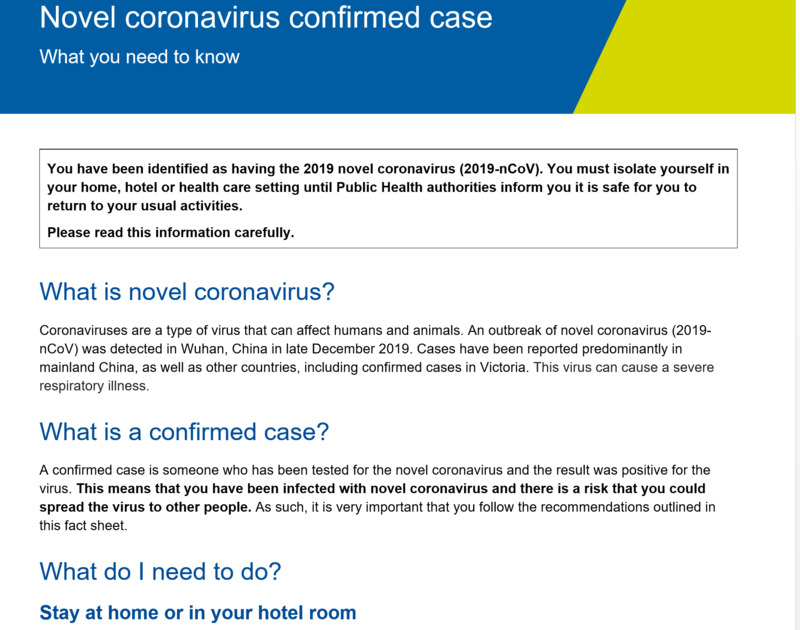 2020-02-11
2020-02-11Victorian State Government "Novel coronavirus confirmed case" fact sheet
Government advice to people who have "2019 novel coronavirus (2019-nCoV)". -
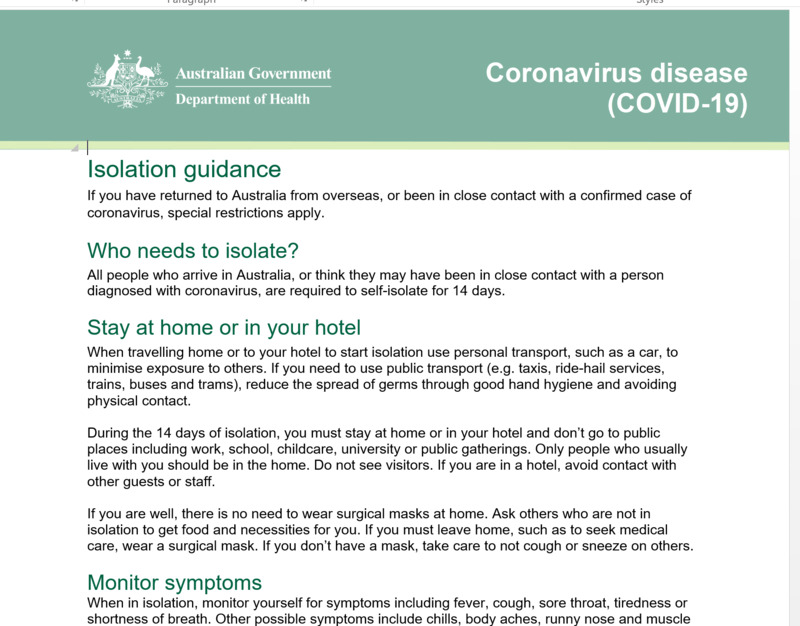 2020-03-23
2020-03-23Australian Government Isolation Guidance
Australian Government fact sheet with guidance on self-isolation, Version 14 Isolation guidance If you have returned to Australia from overseas, or been in close contact with a confirmed case of coronavirus, special restrictions apply. Who needs to isolate? All people who arrive in Australia, or think they may have been in close contact with a person diagnosed with coronavirus, are required to self-isolate for 14 days. Stay at home or in your hotel When travelling home or to your hotel to start isolation use personal transport, such as a car, to minimise exposure to others. If you need to use public transport (e.g. taxis, ride-hail services, trains, buses and trams), reduce the spread of germs through good hand hygiene and avoiding physical contact. During the 14 days of isolation, you must stay at home or in your hotel and don’t go to public places including work, school, childcare, university or public gatherings. Only people who usually live with you should be in the home. Do not see visitors. If you are in a hotel, avoid contact with other guests or staff. If you are well, there is no need to wear surgical masks at home. Ask others who are not in isolation to get food and necessities for you. If you must leave home, such as to seek medical care, wear a surgical mask. If you don’t have a mask, take care to not cough or sneeze on others. Monitor symptoms When in isolation, monitor yourself for symptoms including fever, cough, sore throat, tiredness or shortness of breath. Other possible symptoms include chills, body aches, runny nose and muscle pain. What do I do if I get sick? If you develop symptoms (fever, a cough, sore throat, tiredness or shortness of breath) within 14 days of returning to Australia, or within 14 days of last contact of a confirmed case, you should arrange to see a doctor for urgent assessment. You should telephone the health clinic or hospital before you arrive and tell them your travel history or that you have been in contact with a confirmed case of coronavirus. You must remain isolated either in your home, hotel or a healthcare setting until public health authorities inform you it is safe for you to return to your usual activities. How can I prevent the spread of coronavirus? Practising good hand and sneeze/cough hygiene and keeping your distance from others when you are sick is the best defence against most viruses. You should: • wash your hands frequently with soap and water, including before and after eating, and after going to the toilet • cover your cough and sneeze, dispose of tissues, and wash your hands • avoid contact with others (stay more than 1.5 metres from people) • stay at home if unwell. Going outside If you live in a private house, it is safe for you to go into your garden or courtyard. If you live in an apartment or are staying in a hotel, it is also safe for you to go into the garden but you should wear a surgical mask to minimise risk to others and move quickly through any common areas. Advice for others living with you Others that live with you are not required to be isolated unless they meet one of the isolation criteria outlined above. If you develop symptoms and are confirmed to have coronavirus, they will be classified as close contacts and will need to be isolated. Cleaning To minimise the spread of any germs you should regularly clean surfaces that are frequently touched such as door handles, light switches, kitchen and bathroom areas. Clean with household detergent or disinfectant. Managing the 14 day isolation Being in isolation can be stressful and boring. Suggestions include: • Keep in touch with family members and friends via telephone, email or social media. • Learn about coronavirus and talk with others. • Reassure young children using age-appropriate language. • Where possible, keep up normal daily routines, such as eating and exercise. • Arrange to work from home. • Ask your child’s school to supply assignments or homework by post or email. • Do things that help you relax and use isolation as an opportunity to do activities you don’t usually have time for. More information For the latest advice, information and resources, go to www.health.gov.au Call the National Coronavirus Helpline on 1800 020 080. It operates 24 hours a day, seven days a week. If you require translating or interpreting services, call 131 450. The phone number of your state or territory public health agency is available at www.health.gov.au/state-territory-contacts If you have concerns about your health, speak to your doctor. -
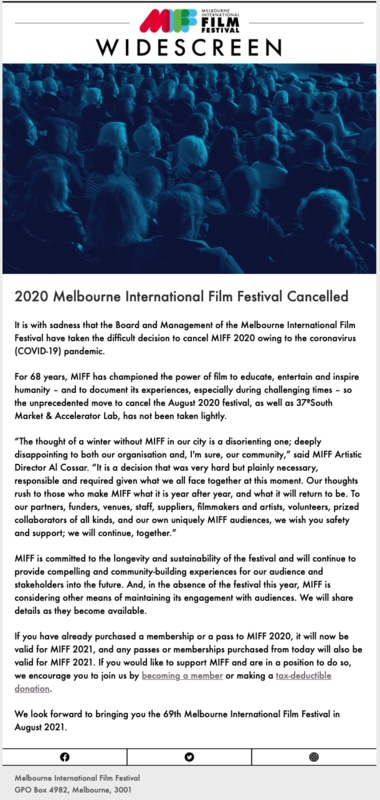 2020-04-07
2020-04-072020 Melbourne International Film Festival Cancelled
Announcement of cancellation of the 2020 Melbourne International Film Festival due to the pandemic -
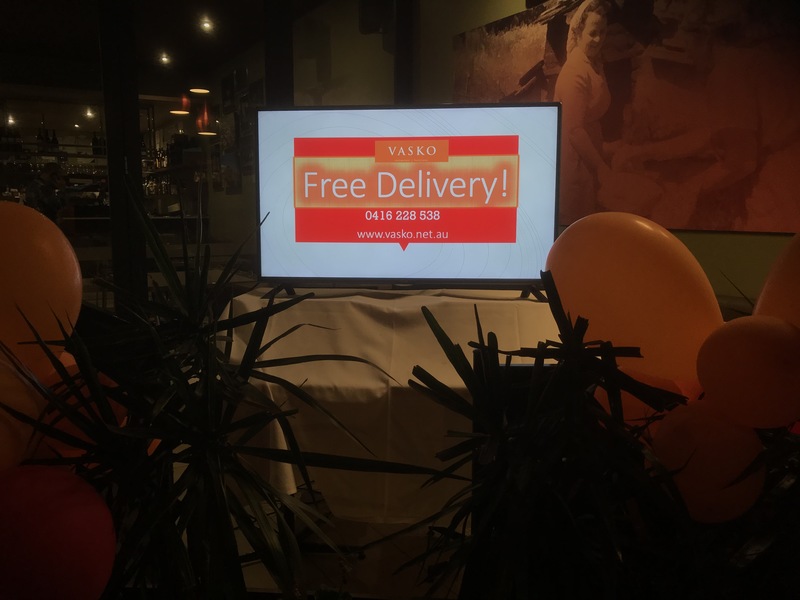 2020-04-06
2020-04-06Free delivery
Suburban restaurant Vasko (111-113 Upper Heidelberg Road, Ivanhoe) offering free delivery -
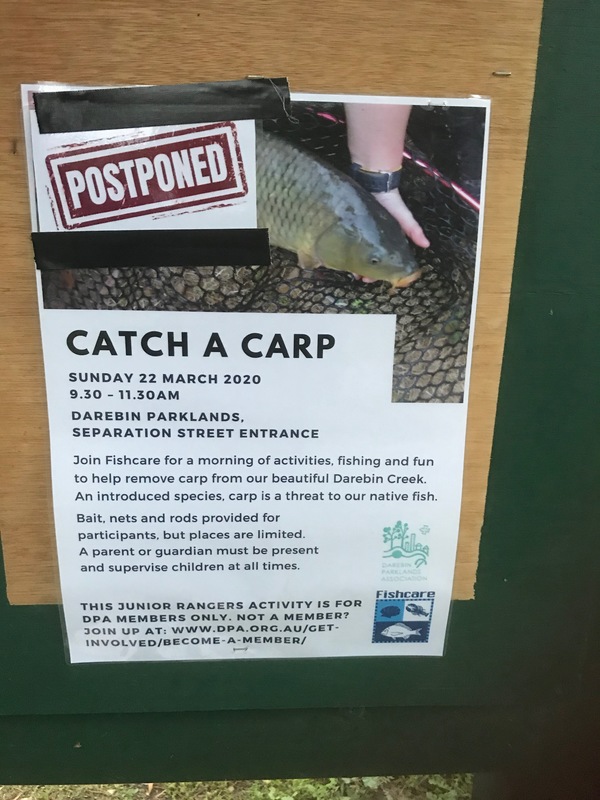 2020-03-22
2020-03-22"Catch a Carp" postponed
Postponement of Fishcare event to remove introduced carp from local river system -
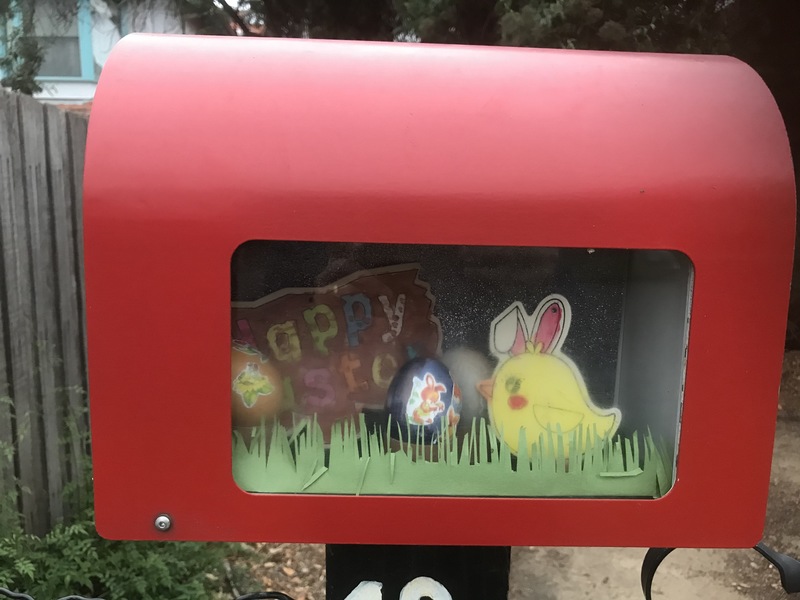 2020-04-06
2020-04-06Letterbox art #2: Easter message
Easter message in letterbox art -
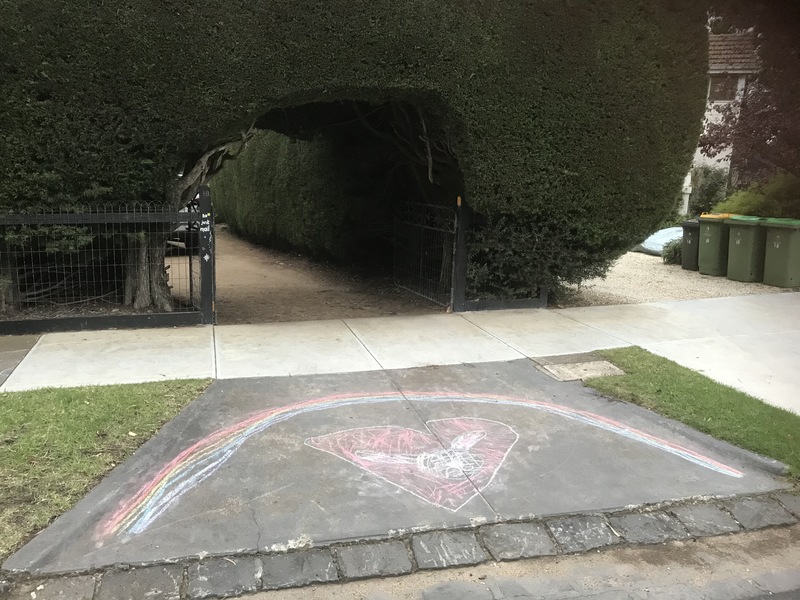 2020-04-06
2020-04-06Chalk messages on footpaths
Chalked messages and pictures of hope -
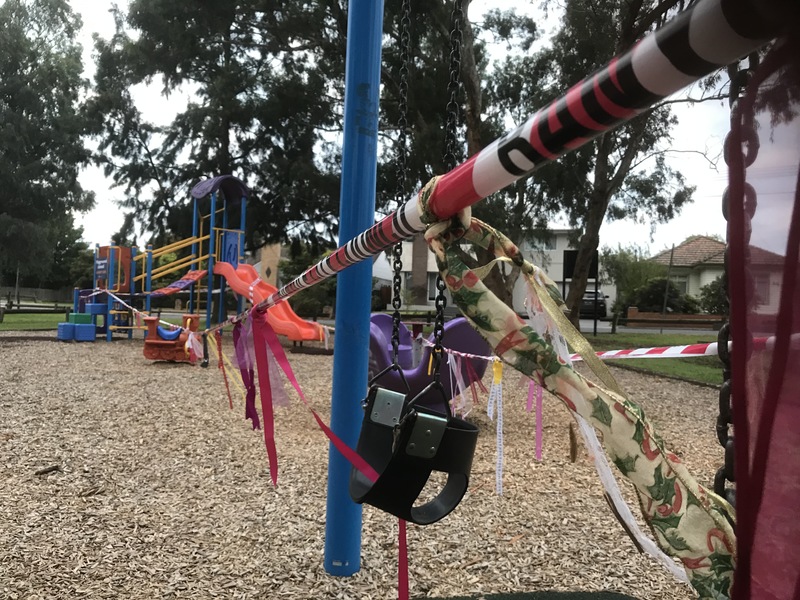 2020-04-06
2020-04-06Kids respond to playground closure
All the local playgrounds closed at the end of March and now the kids have decorated the Council tape — Rossi Reserve in Ford Street, Ivanhoe. -
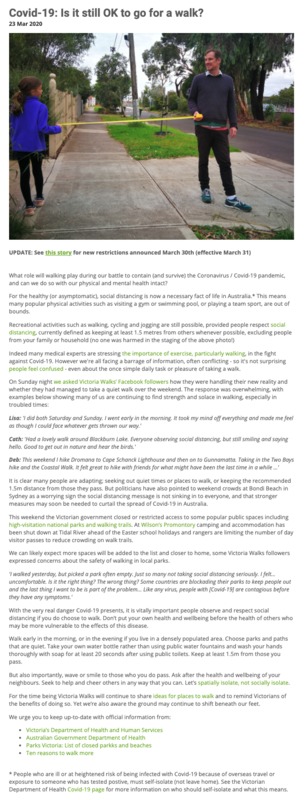 2020-03-23
2020-03-23Is it still OK to go for a walk?
Advice about walking, and how it is making people feel -
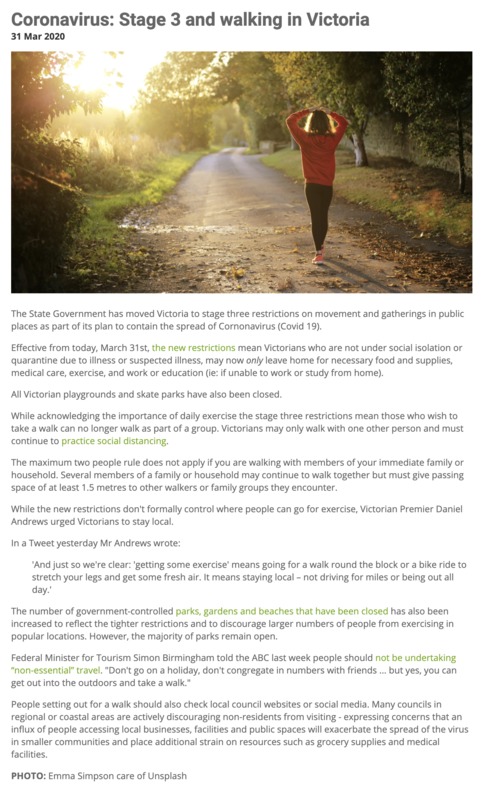 2020-03-31
2020-03-31Advice re walking
Victorian State Government advice about walking -
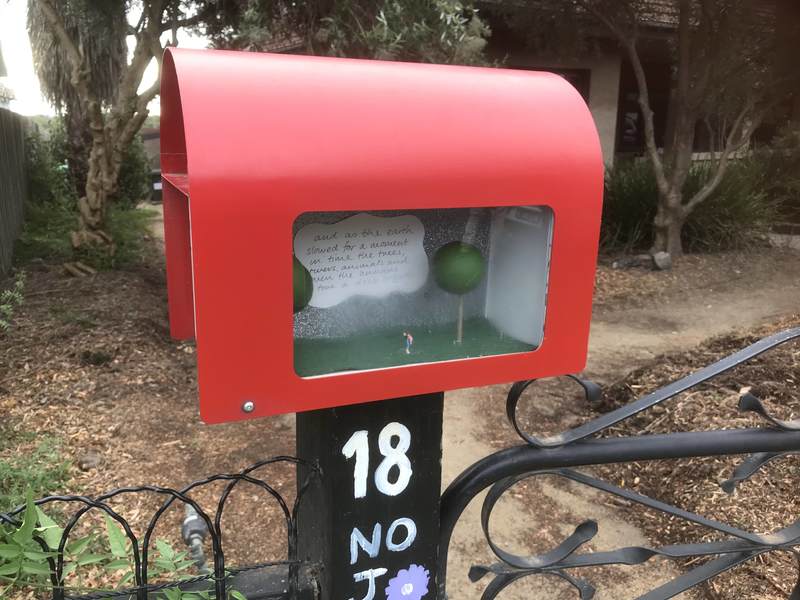 2020-04-03
2020-04-03Letterbox art #1
Message to passers-by in suburban letterbox: "And as the earth slowed for a moment in time the trees, rivers, animals and even the humans took a deep breath …". -
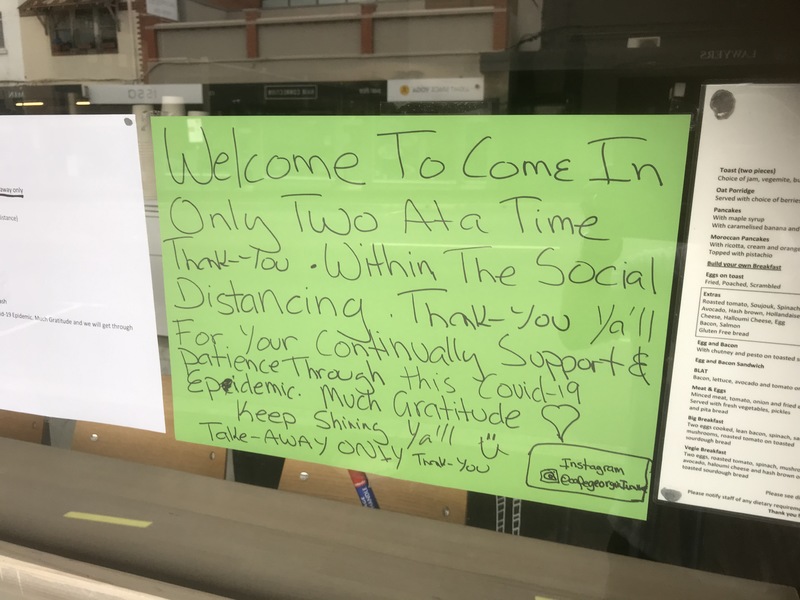 2020-04-01
2020-04-01Take-away only
Cafes and restaurants like Cafe Georgia in Ivanhoe now take-away only -
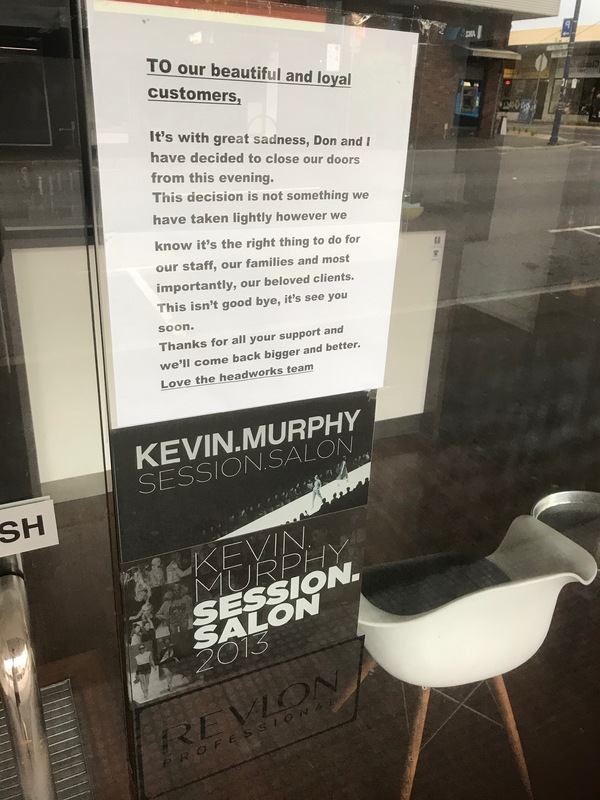 1 April 2020
1 April 2020Business closure
Many shops on Upper Heidelberg Road in Ivanhoe now closed for business. There was some controversy when government allowed hairdressing appointments of 30 minutes when other businesses were already being asked to reduce their services and social distancing was already de rigueur. -
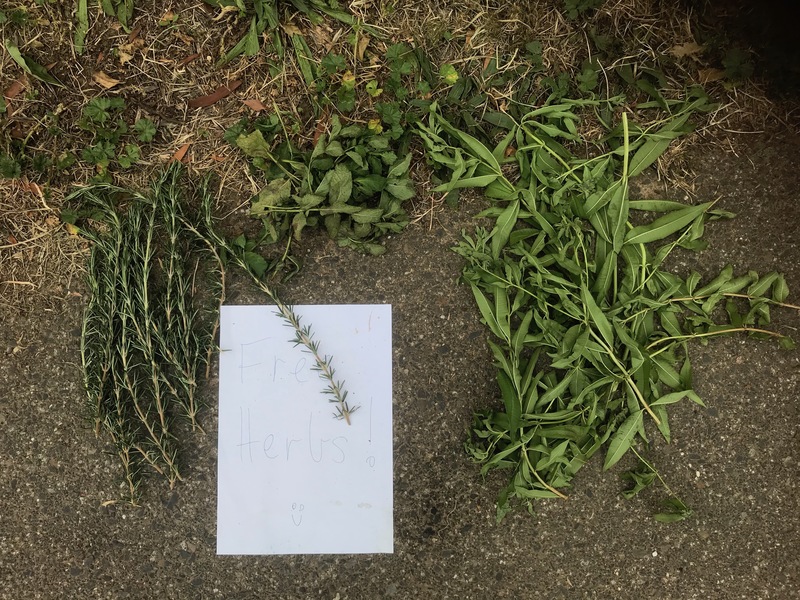 2020-04-01
2020-04-01Free herbs
The things you see out on a neighbourhood walk — kids finding ways to be helpful. -
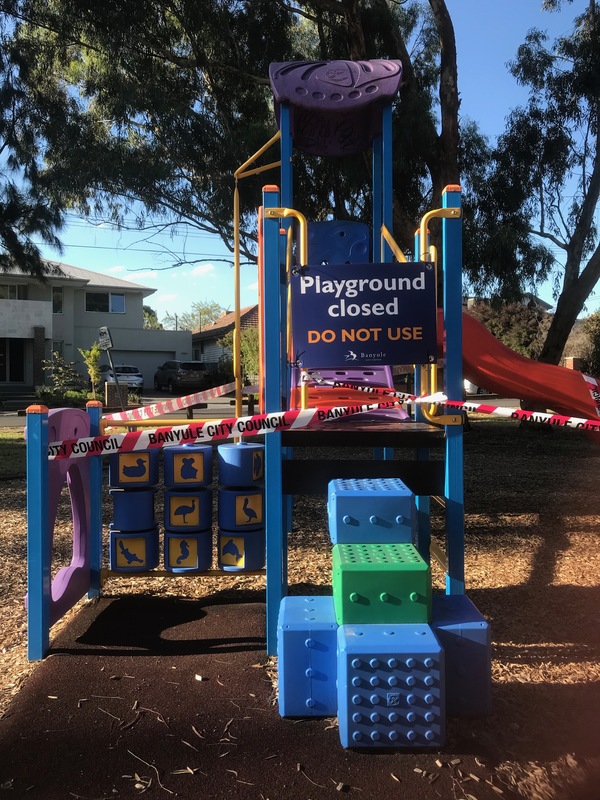 2020-03-31
2020-03-31Playground closed
All the local playgrounds closed from today. This one is Rossi Reserve in Ford Street, Ivanhoe. -
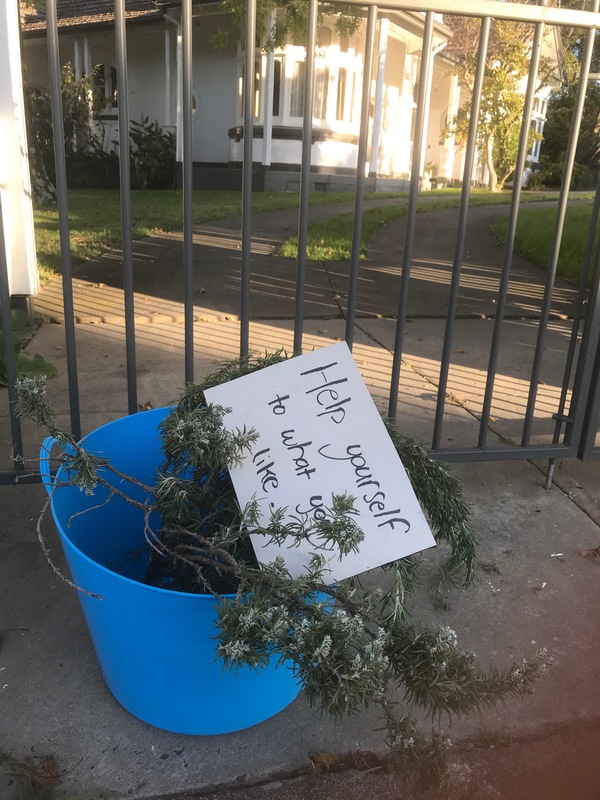 2020-03-31
2020-03-31Rosemary for remembrance (and roast lamb)
Neighbourhood in virtual lockdown but some people leaving out excess for others, corner of 14 Waterdale Road and Latham Street. -
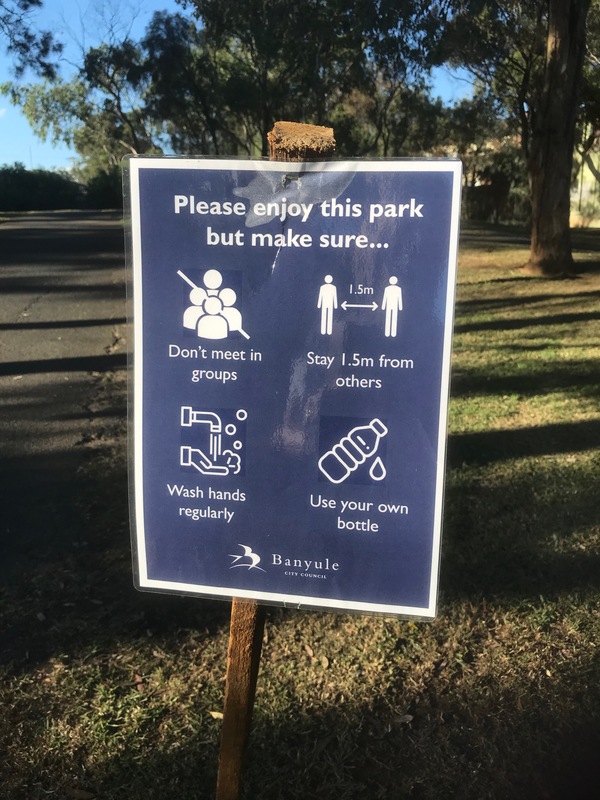 2020-03-31
2020-03-31New park rules appeared today
We are going for a walk every day for exercise, noting as the days go by new signs and information about social distancing. These signs were not there yesterday, and the teenagers playing basketball at the hoop and the kids playing on the playground have now disappeared. Just groups of two, or families with a few more, walking slightly furtively past one another. And many more bicyclists whizzing past on the shared paths — have already seen a bingle or two. -
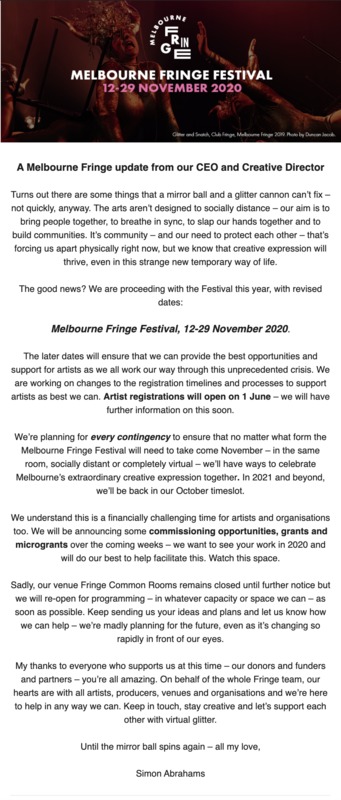 2020-03-31
2020-03-31Until the mirror ball spins again
Melbourne Fringe Festival revised dates now 12-29 November 2020 -
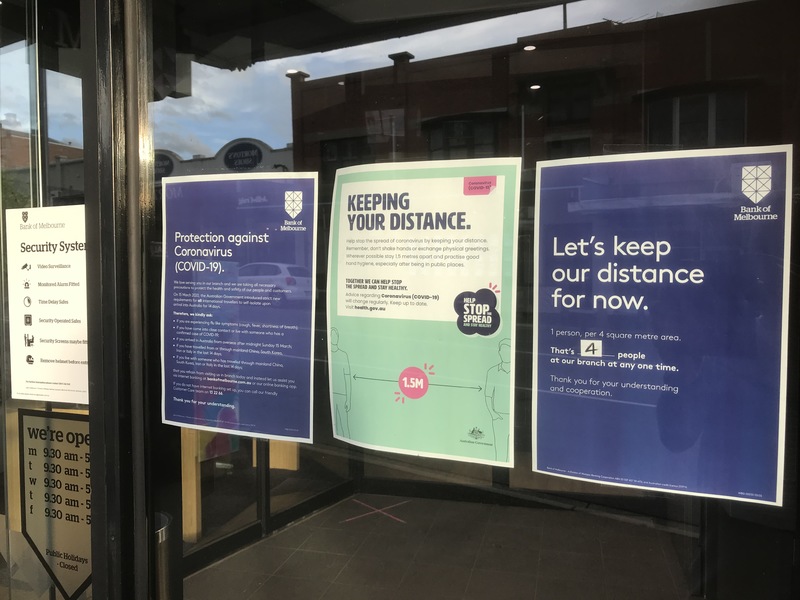 2020-03-30
2020-03-30Signs on bank window re social distancing: 1 person per 4 square metres rule
Public health warning signs about social distancing in Bank of Melbourne window, 162 Upper Heidelberg Road, Ivanhoe, Melbourne. -
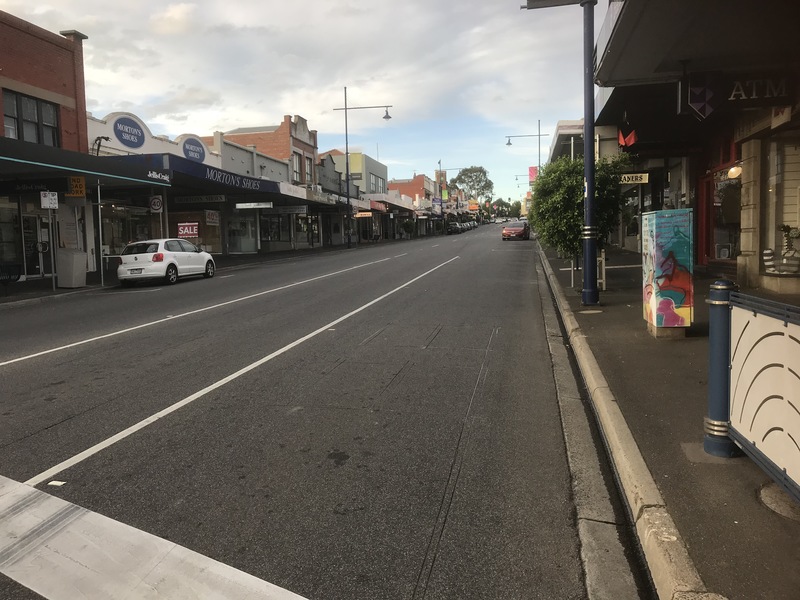 03/30/2020
03/30/2020Empty street
Shot from intersection of Seddon Street and Upper Heidelberg Road, Ivanhoe take 6:30pm Monday when street would normally be packed with peak hour traffic. -
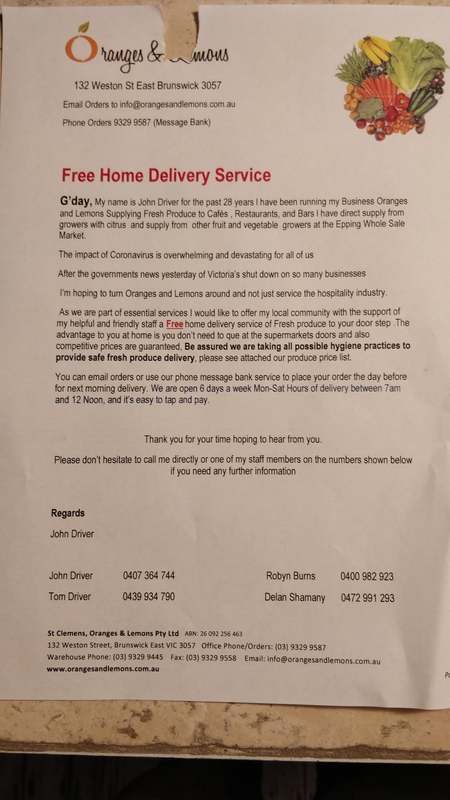 2020-03-27
2020-03-27Free Home Delivery Service
Supplier to hospitality industry turns to home delivery to save fresh produce small business -
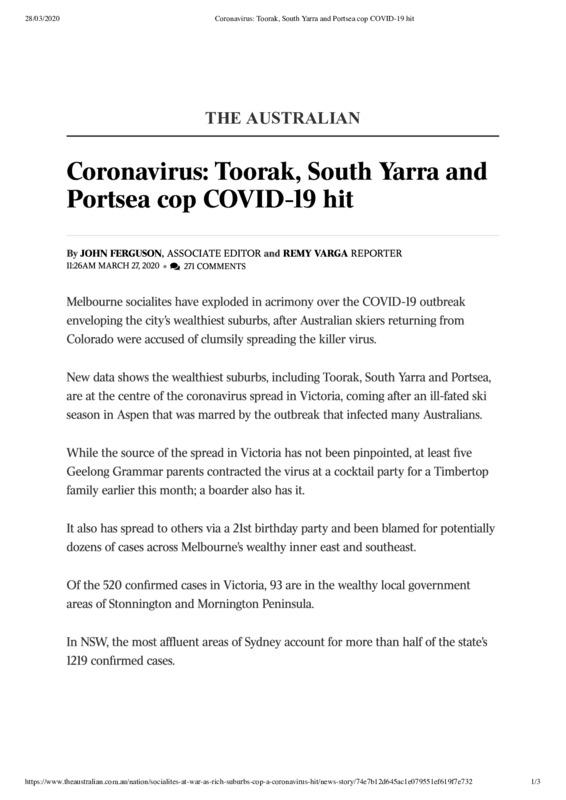 2020-03-27
2020-03-27Class tensions in Melbourne over virus transmission
Residents of Melbourne's wealthy suburbs at the centre of coronavirus spread as they return from Aspen ski season. -
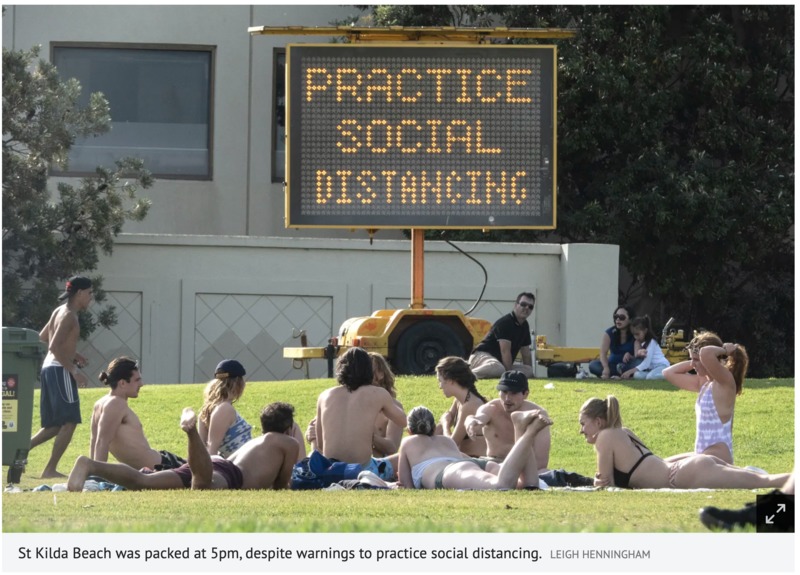 2020-03-27
2020-03-27Social distancing?
Headline: "Beaches closed after crowds defy social distancing rules" -
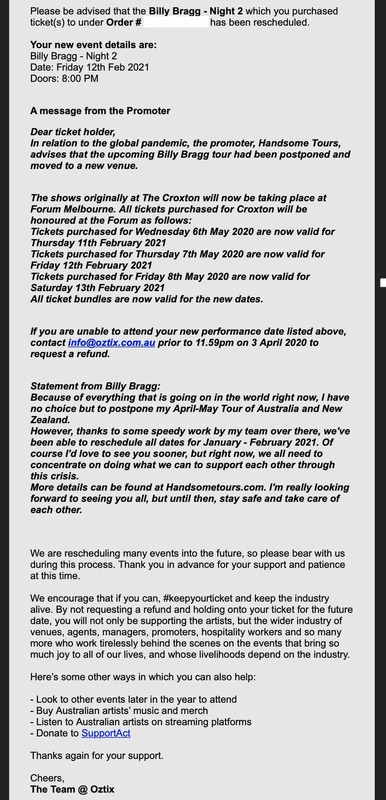 2020-03-24
2020-03-24Concert rescheduled to 2021
Our Billy Bragg concert on 7 May 2020 has been confidently rescheduled – to 12 February 2021! -
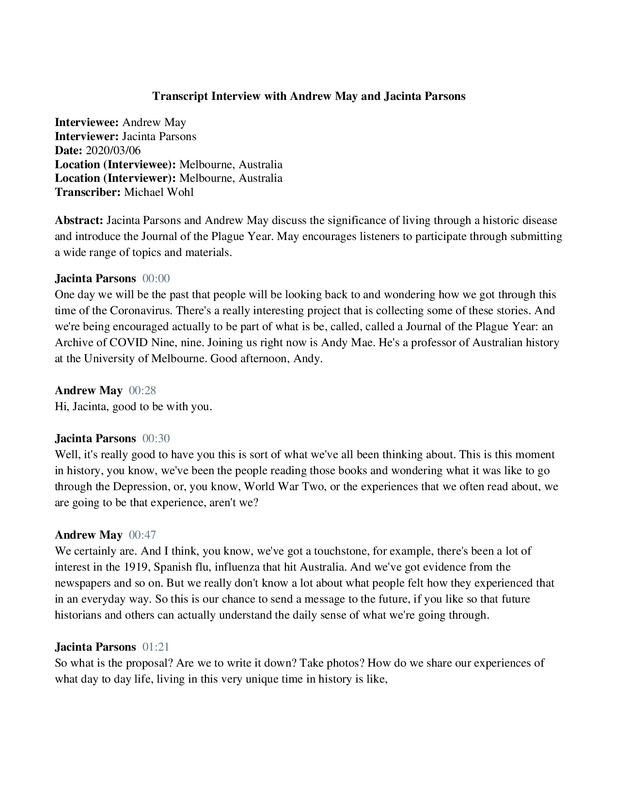 2020-03-26
2020-03-26Interview about the project
Radio interview by host Jacinta Parsons with Professor Andy May from the University of Melbourne about 'A Journal of the Plague Year' project. -
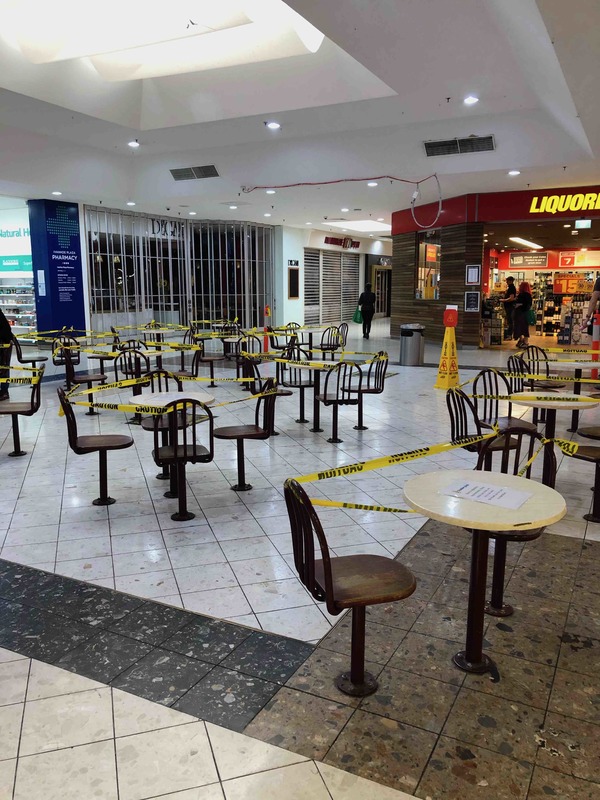 2020-03-24
2020-03-24Social sequestration at the shopping mall
Taped up seating at the local shopping centre -
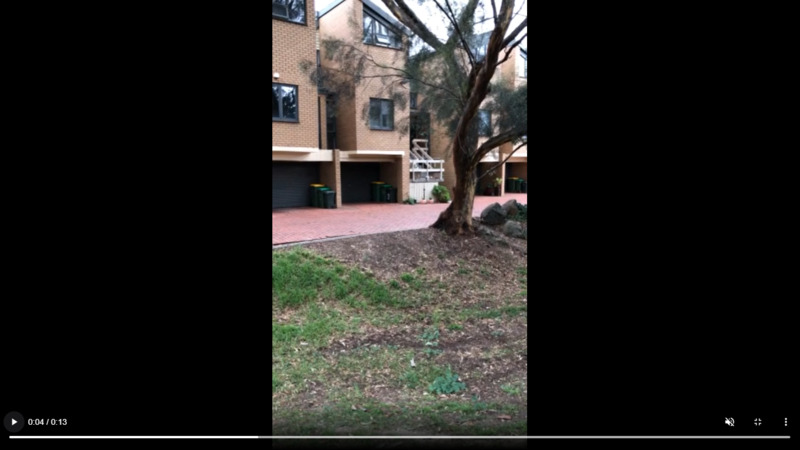 2020-03-25
2020-03-25Noisy neighbours
We were out for a walk and heard a housebound resident in a local apartment banging out on the drums — more people confined to home might suggest taking up a quieter musical instrument! Neighbourly protocols might be tested. -
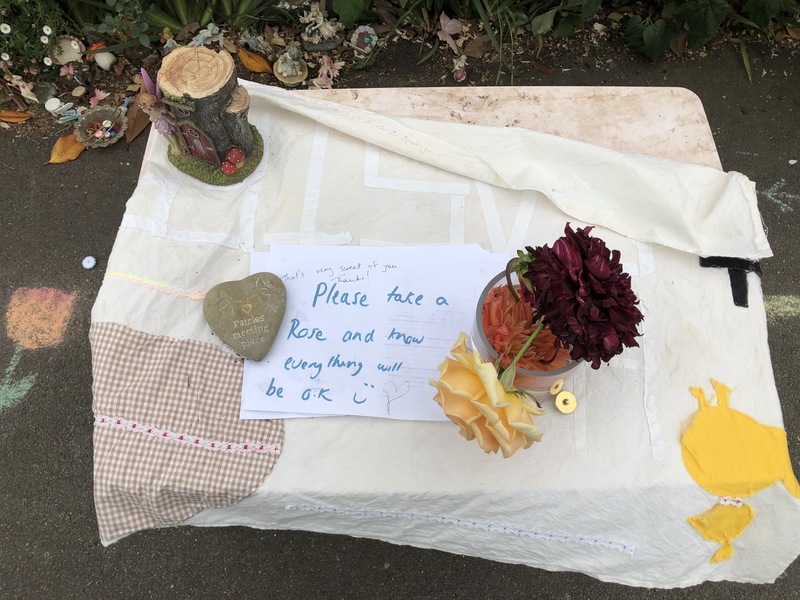 2020-03-25
2020-03-25The optimism of children
Schools have closed for an interim period (maybe) — the kids down the street send messages of encouragement for all the people in the neighbourhood who are out taking a daily constitutional. -
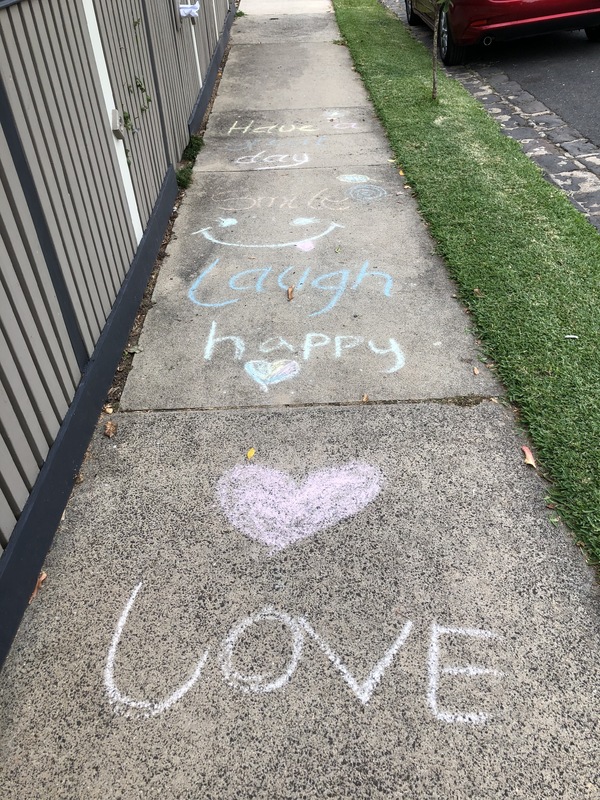 2020-03-25
2020-03-25Chalk messages on the footpath from neighbourhood kids
Schools have closed for an interim period (maybe) — the kids down the street have chalked messages of encouragement on the footpath for all the people in the neighbourhood who are out taking a daily constitutional. -
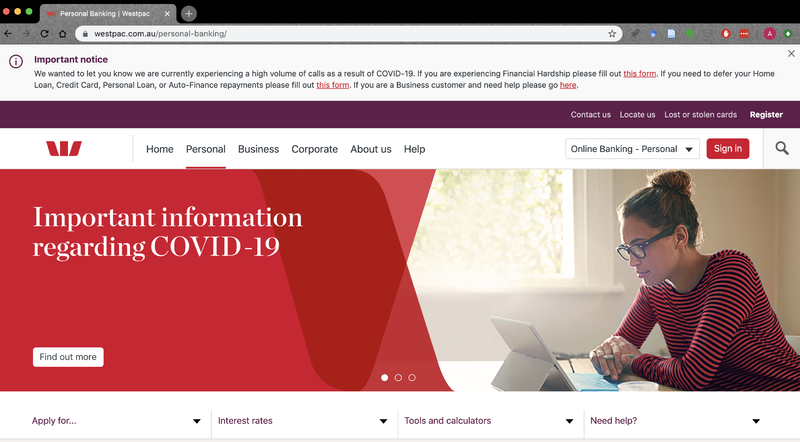 2020-03-23
2020-03-23Banking information
Banks experiencing high volume of calls re financial hardship -
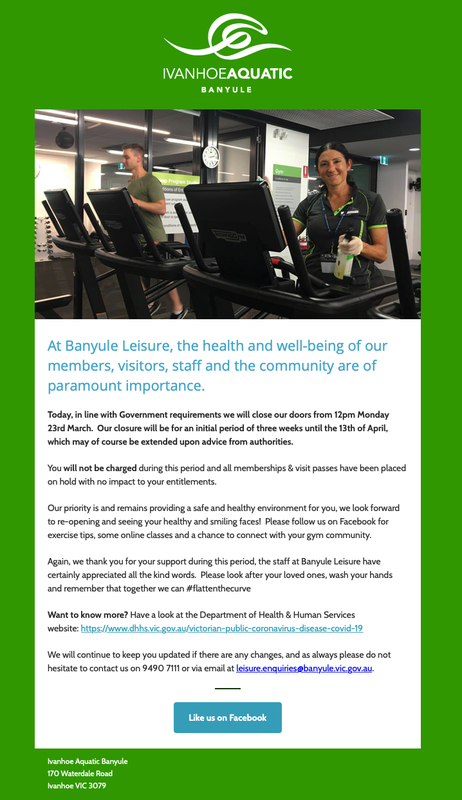 23 March 2020
23 March 2020Leisure centre closure
Announcement of leisure centre closure in line with Government requirements -
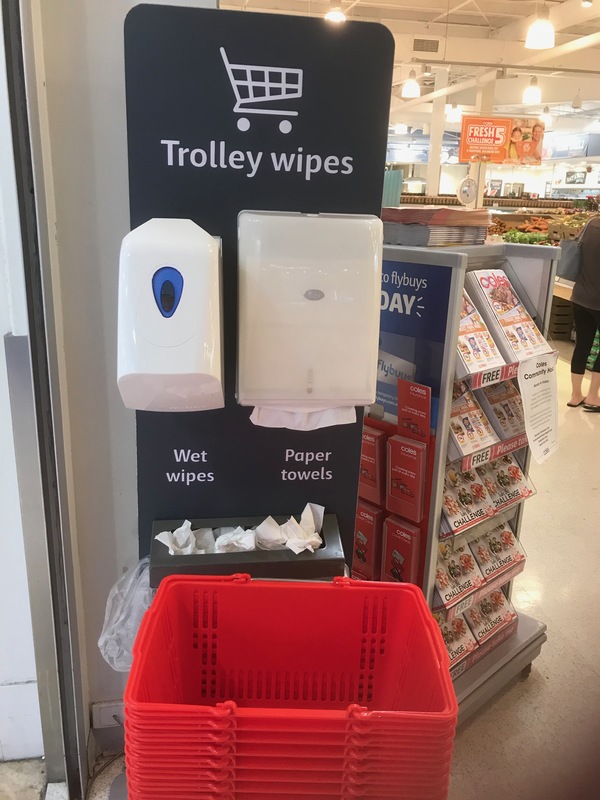 18 March 2020
18 March 2020Trolley wipes
We can wipe our trollies, but no toilet paper.
